Another word for a “Two Face” is a hypocrite, and in some ways a hypocrite is a coward. A fearful person who appears one way but is another.
Many of the YouTube conspiracy buffs associated with this case spend their time sifting through details and detritus, looking for meaning and revelation. But it’s not in shadows or dolls covered in plastic sheets that the real answers lie. It’s somewhere else, somewhere more subtle.
One of the obvious idiosyncrasies of this case is not only Shan’ann’s OCD, but Chris Watts’ OCD. If Shan’ann was more about organizing and scheduling, Watts seemed preoccupied with numbers, cleanliness and self-grooming.
Those who dispute the OCD Narrative, or which to minimize it, do the disservice of breaking a vital fragment of the psychology from this case, and removing it from the main body. If we acknowledge that OCD was present within both of these people, where does it lead us?
There’s a long and a short version to the answer. The short version is that OCD is symptom of one simple thing: anxiety. It’s a psychological attempt to control anxiety. This suggests that both Shan’ann and Watts were – despite appearances, despite their public faces or social media avatars – privately insecure and unusually anxious.
This chronic social anxiety partially explains Watts’ motive. He was a weak man with a weak social currency, and in his mind destroying his family and making them disappear was the easier option than a messy divorce. Probably money factored into his decision-making, but it was driven by fear. Fear of retribution from a vindictive society if he did things by the book.

Coming back to Shan’ann, and her second face, when we take the OCD Narrative [as well as the anxiety] into the realm of MLM and Facebook, we see all the troubles that are there magically disappear. How? Through magical thinking. Suddenly the world is recast as a place where one can Thrive. All problems disappear as soon as I put a patch on my arm. What the MLM effectively is in this case is a proxy for the OCD. It’s an antidote against anxiety.
It’s also a lie, which shows how ultimately the efforts to control anxiety by putting on a brave face may fool a few people, but the real loser is the liar. We don’t learn by lying, we learn by living. We don’t grow or enrich ourselves by lying, but by advancing ourselves in reality.
Where these ideas bring us is to the original title I wanted to use for this post: The Psychological Connections Between OCD, Trauma and Victim Culture. Since I thought it would scare most people away I went with the kindergarten version.
Elsewhere on this site a discussion arose around the relevance of history. It doesn’t seem relevant, does it? What does a war in a previous century have to do with a family in Frederick Colorado? Everything and nothing. Everything in the sense that a myriad of forces we’re not aware of are forming our culture, and who we are, and who we respond to our circumstances today. And nothing, because the identities in this story were to some extent self-generated.
It’s important to consider both aspects in true crime – the cultural psychology aspect and the identity aspect.
We ought to be aware that “identity politics” was what fueled the Second World War. Identity politics is all about rallying around and identifying strongly with an idea. One identifies so strongly with this idea, that one’s identity becomes infused with it.
For those interested in this subject, I recommend a brief browse through the history of identity politics [written by the sociologist Frank Furedi]. Here’s an excerpt:
…the politics of culture has rarely allowed the forging of strong bonds between different groups, as today’s acrimonious dispute between feminists and trans activists shows. Human solidarity is one of the main casualties of identity politics. Once different groups retreat into their respective safe spaces, there will be little common ground left for those committed to the politics of solidarity and the ideal of universalism…
How identity politics appears in the Watts case is this tribal approach to identifying with the victim, or sympathizing excessively or inappropriately with perpetrator, and then the two groups bombarding one other with the backing of their respective political camps. TCRS actively discourages this practice, but it’s nevertheless a constant theme in true crime.
Identity politics is our own form of OCD. It’s our own version of trying to control or recast our anxiety. There is a lot more to say about the Culture of Victimhood as a general theme pervasive in our society, and also the victim psychology within the Watts case. What’s clear is during his “confession”, when Watts himself was becoming a real victim in his own story, he was offered an olive branch.

He was offered the chance to be the victim, and thus innocent of his own actions. This was ironic given the reason he committed the crime – it was a chance to no longer be a victim, and not be held accountable by his ex-wife for his actions [meaning his new partner could see him as innocent, or in his mind, as “who he really was”.]
When offered the chance to be the victim during his interrogation, Watts did this by making his murdered wife the offender.
Think about Identity Politics and idea of identifying with a Perceived Victimhood. Maybe you feel discriminated against because of your race, sexual orientation or some other reason. Maybe you feel diminished because of someone or something else. Maybe you feel your country is about to be overrun by immigrants. Maybe you feel someone or some class of people is invading your domain and will soon steal your job. All of this raises anxiety. At the same time, the source responsible for this narrative offers an instrument to sort it out [a wall, a patch, an exit, an army of the like-minded etc].
There is also a fascinating relationship between history and victimhood, in fact history tends to be used like a convenience store to prop up victimhood, especially in modern times. So after decades of silence on the subject, concepts like slavery and colonialism and the idea of privilege comes into vogue, at a time when – for example – colonialism is safely in our past. So why bring things up if their relevance to our actual lived realities is such a stretch?
Because it cuts to who we are. It cuts to the core of our own whys. And this is the attraction of true crime. We don’t realize it, but in some way, shape or form we identify with the circumstances of a crime as much as we are horrified and try to distance ourselves from it. Even when we blame and disassociate ourselves, calling the criminal names that makes us feel better about ourselves, we reveal our own shallow approach to the victim and their lived experience. We’re not expressing solidarity when we gravitate to a victim psychology, we’re doing the opposite: we’re separating ourselves from a universally lived existence, and we do that in an attempt to elevate ourselves [as innocent victims we deserve some sort of recompense, some compensation].
We need to move beyond imposing our own sense of Perceived Victimhood on how we see others, and how we see the world. Just as MLM recasts the world in an instant as a place filled with magical solutions and patches that can transform our lives, victimhood does the same. We wear a patch branded with a particular kind of victimhood, which allows us to belong to a fellowship of victims, and we may even pay money to do that.
TCRS is about seeing the people in these cases, not imposing our own narratives onto them.
It’s not easy.
I don’t like to discuss these concepts here, simply because they require a lot of background, and a lot of silent contemplation. I prefer to do due diligence to these ideas as a chapter within a narrative where it will resonate best, and where there are a lot of enriching references to sketch the psychology properly. Also, many who come here skating on the highways of Google, tend to be the least affected by them. This is a private and personal matter, and better debated and considered as part of one’s own internal dialogue.
Let me leave you with something from Psychology Today originally posted in June 2014.
Why would people loudly and publicly proclaim themselves as victims? Perhaps a better question, based upon the level of secondary gain, attention, protection and support received by these people, is why wouldn’t they? With all of the attention on the issue, why are we surprised when people are exaggerating, using, or downright lying, about victimization? Of course, when we attach benefits to identification as a victim, we will hear from more victims, both real and exaggerated. Acknowledging a history of victimization is healthy, but is that all that a person is?

True Crime Analysis, Breakthroughs, Insights & Discussions Hosted by Bestselling Author Nick van der Leek
© 2025 TRUE CRIME ROCKET SCIENCE
Theme by Anders Noren — Up ↑
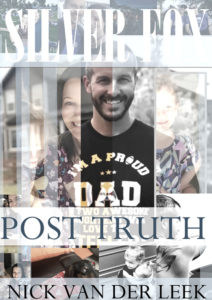
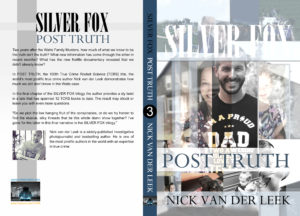
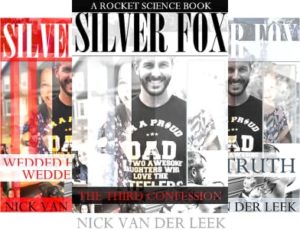

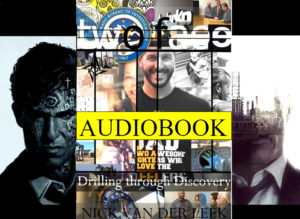
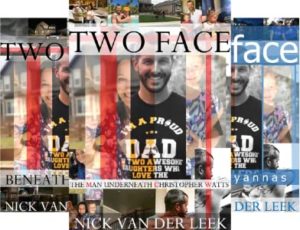

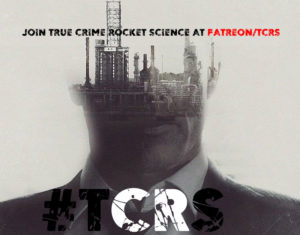

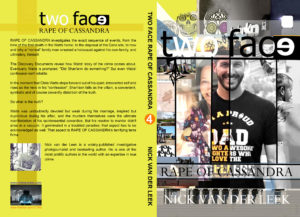
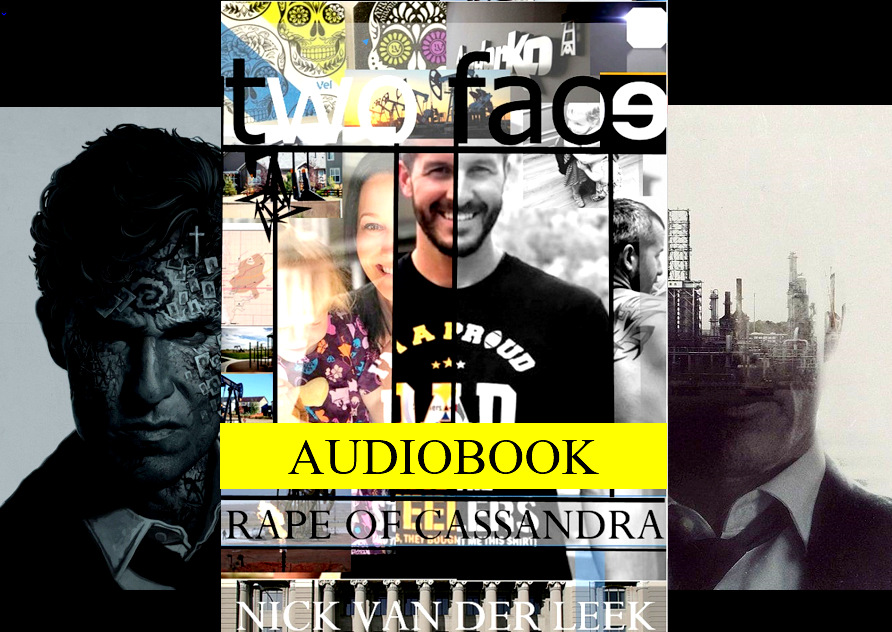
Excellent post, full of subtlety and profundity.
A lot of what you set forth reminds me of Horney’s “The Neurotic Personality of Our Time”.
More grist for the mill:
I always viewed Shannan’s Thrive obsession and general image-oriented OCD as a cover for anxiety.
But I later began to suspect her identity as Lupus Victim as belonging to this class as well, although superficially it seems like a con for pity, attention and admiration.
The hypochondriac uses the illness as a substitute for more dreaded impulses and feared disasters. For example, she claimed “so many people abandoned her when she was diagnosed” as a cover, perhaps, for the abandonment which followed her criminal activity.
Hypochondria is also a form of putting oneself under house arrest.
I suppose Shannan and Chris could be called co-dependents. He surely was anxiety-based and shame-based to the core.
@CBH Well put.
*GOD* yes. All the way down. Ima gonna short-cut to the end, though everything in between is worthy of further expansion:
>I suppose Shannan and Chris could be called co-dependents. He surely was anxiety-based and shame-based to the core.
Sure. People “fit” together on the basis of many different traits. Shan’Ann presented herself to Chris as this beautiful, vulnerable, tragic broken dolly, and he rode to her rescue as her knight in shining armor. He would spirit her away to CO and *save* her! And then she revealed herself as a consummate manipulator, the REAL power behind the throne, and Chris was caught off guard, ill-suited as an adversary. He didn’t *want* to be an adversary! So he soldiered on and did his best to provide for his family, according to the traditions he knew, and then there were not one, but TWO little girls, adorable, sweet, heart-breakingly vulnerable and enchanting, in the mix. And he *loved* them. He loved them so much that he would “save” them from adverse circumstances if he could.
And he could.
See https://crimerocket.com/2018/11/13/dad-i-could-not-put-the-girls-with-her-after-what-she-did-i-could-not-put-them-with-her-chris-watts/comment-page-1/#comment-17533 – go to the top for the entire article.
Great posting; going to link now, thanks 👍🏼
Very insightful post, CBH. Thank you.
Thank you, Cheryl.
CBH I see you studied, and enjoyed, the Personality Theorists – Adler, Karen Horney, Rogers, Jung. I was Pavlov, Watson and most particularly Skinner – operant conditioning and schedules of reinforcement. In fact our little band of Skinner-ites would wear around Superman T shirts with SR+ on the logo – or white lab coats. Never even thought about why some of us were attracted to one particular branch of Psych over another – but B.F. Skinner was all about controlled environments and observable behavior. A ha! Now I get the attraction! I also leaned toward Social Psychology – the study of group dynamics, peer pressure, conformity. After the O.J. Simpson trial I read Alan Dershowitz book “The Abuse Excuse.” “I am this way because of….” fill in the blank. That, is the victim mentality. Might be drugs, a “bad” parent, or the government or your school – that “determined” who you are, thus you are a victim of any of it and all of it.
What I see with Shan’ann and Chris – and NK too is people who came with a history as we all do – a background if you will – a lineage and collection of experiences from generations before them that shaped their environment and how they interacted with one another. On Shan’ann’s side, physical illnesses – which also would have shaped how she interacted with her children wanting to make sure they were diagnosed early and taking their medications. Perhaps a reliance on medications, fearful if they didn’t take their medications.
Mostly these people in the Watts family tragedy could be us – marriages fall apart, people cheat,we all lie – and I would say we are “victims” of our own labels we give ourselves, or our belief systems. We believe what we believe and we are right about it dammit. There doesn’t seem to be much introspection into why we believe as we do, how those constructs were formed or why we hold so rigidly to them. Or to see that they are beliefs – no, they are who we are. Our identities – only we don’t get the distinction “identity.” Lastly, and first we are human beings. We are all connected but use our labels in order to separate ourselves from others, branding ourselves “unique.” We are the same, trust me. Until I can accept that I am a right wrong machine that wants to dominate and see what that costs me, then I will forever remain over here, and you will be over there.
Widely divergent (to my own) psychology sources, in a sense diametrically opposed —but your conclusions are quite similar to my own. Bravo to the closing:
**”Lastly, and first we are human beings. We are all connected but use our labels in order to separate ourselves from others, branding ourselves “unique.” We are the same, trust me. Until I can accept that I am a right wrong machine that wants to dominate and see what that costs me, then I will forever remain over here, and you will be over there.”**
“Those who dispute the OCD Narrative, or which to minimize it, do the disservice of breaking a vital fragment of the psychology from this case, and removing it from the main body.”
So bizarre that you have no problem labeling them ‘OCD’ but you lose your mind when others label CW a “Narcissist”. That is super hypocritical. Bless your heart.
BTW: Author H.G. Tudor talked about CW and said he is a Middle Lesser narcissist. The term Lesser refers to IQ range, and within lesser there are 3 subsets, so he says Chris is 2nd from the bottom. Above Lesser is Mid-range and Greater. Lessers are the most likely to take out their frustrations with violence. The upper 2 (i.e. intelligent) types are more into manipulations and cons, etc. They can be violent, but it takes more to provoke it in them.
So bizarre that you have no problem labeling them ‘OCD’ but you lose your mind when others label CW a “Narcissist”. That is super hypocritical. Bless your heart.>>>You seem to have a slight error in your thinking here. I’m not labeling them OCD, Shan’ann labelled herself OCD and she is OCD. Her friends and family also experienced her that way.
If you want to talk narcissism, Shan’ann was the bigger narcissist of the two, but to have that conversation you’d need to know more than you do about narcissism.
I don’t know if you realize this, nickvdl, but “Bless your heart” is a condescending insult.
Lol, no, I do. Which is why I used the innocent-sounding “You seem to have a slight error in your thinking here.”
Ha. I thought that was just continental manners.
I had a relative, whom I was not close to, who moved to the Deep South, and when I would see her, she would often react to something I’d say with “Bless your heart.” I couldn’t explain why, but I always felt that this wasn’t a particularly *kind* comment, though the words sound innocuous enough. I finally realized that it actually is the backhanded Southern way of saying, “What an idiot you are.” One visit, she was complaining about one of the expensive vacations she and her husband went on, saying that she looked in the mirror and thought, “I’ve never looked this tired in my entire life.” I responded with “Bless your heart,” and she never said that to me ever again!
Some people *love* to establish strata such that they themselves are *obviously* FAR ABOVE those who have done Bad Things – on all the measures.
Jacqueline: So what you’re saying is that Shan’ann was an upper narcissist, except that she wasn’t too intelligent when it came to money, because eventually scamming people by promoting MLM’s will make the scammer the scammed one, and bring a whole lot of misery to a pyramid of folks, including one’s self. As for Chris, he was an abused husband who made a very bad decision that many here, with the help of Nick, are trying to find out what exactly could have happened. Throwing shade, however you want to disguise it, be it with fancy psychological terms, or upteem new accounts, still is shade, that gets us nowhere, but makes you look like a scorned fool, and not a very bright spiteful fool at that.
@Freccia Feel better? Lol What’s easy for you may not be for someone else…you do not even understand the CONTEXT of the comment IIt’s clear. I want you to take a deep breath… you do not have to be an intellectual giant to grasp that Chris Watts was not an abused husband but yet a Psychologically broken con man, learn the difference. He only had the emotional budget for a drive-thru relationship – get what you want, when you want it, now.
“When there exists a gaping contradiction between words and actions, duplicity is indicated.”
It’s these petty conversations that I despise when one goes to the effort to post a serious conversation on the subject. Banned. Oh, excuse me I see I’ve banned you [Sara, Geoff, Guest, etc etc] already.
“Shan’ann was an upper narcissist, except that she wasn’t too intelligent when it came to money, because eventually scamming people by promoting MLM’s will make the scammer the scammed one, and bring a whole lot of misery to a pyramid of folks, including one’s self.”
So far, so good…
“As for Chris, he was an abused husband who made a very bad decision that many here, with the help of Nick, are trying to find out what exactly could have happened. Throwing shade, however you want to disguise it, be it with fancy psychological terms, or upteem new accounts, still is shade, that gets us nowhere, but makes you look like a scorned fool, and not a very bright spiteful fool at that.”
I’m liking where this is going…
Could Shanann and Chris have had a perspecticde relationship.
Good Post by Nick, as always.
CBH, good comment.
Shannon –
What’s a perspecticde ?
Testing.
Thanks, Shannon.
This is one of your best (most thought-provoking) posts yet, nickvdl. Well done.
Addressing deep-seated anxiety by putting on what one evaluates as an “attractive” façade. And then expecting the rewards that should be due, given that façade. Seeking to punish if the rewards are not forthcoming – woe betide the unfortunate caught in those crosshairs. It’s always someone ELSE’s fault.
“The Psychological Connections Between OCD, Trauma and Victim Culture.”
That’s a powerful title. Too bad so much of our culture falls into the tl/dr category.
“When offered the chance to be the victim during his interrogation, Watts did this by making his murdered wife the offender.”
When the *authority figure* extended to Chris the idea for an “out”, Chris jumped on it with all fours. ANY opportunity to deflect the responsibility for the murder of those two innocent little girls onto someone else, even their mother who would have died before ever even considering that. I would *love* to hear Chris describe how he really felt about Shan’Ann and what events led to that conclusion. THAT would be useful. Too bad we’ll likely never get it. It’s hard enough as uninvolved strangers to delve into the details of what Shan’Ann was doing and the financial repercussions without being branded as hateful haters. CW’s survival at this point depends on him keeping his mouth shut, to a great extent, so we can’t expect any “revelations” to be forthcoming.
“Once different groups retreat into their respective safe spaces, there will be little common ground left for those committed to the politics of solidarity and the ideal of universalism…”
We’ve seen that in this space here – how either you are a defender of Shan’Ann or you are EVIL!! Any attempt to understand *why* CW felt that murder was his only option (which CW obviously believed) is met with personal attacks and calumny. Attempting to understand the murderer is to align oneself *with* the murderer, to become complicit in the murder. This does not help us understand what happened – not at all! Quite the opposite!
“the source responsible for this narrative offers an instrument to sort it out [a wall, a patch, an exit, an army of the like-minded etc].”
This is really important, in order to understand what’s creating and feeding the anxiety (“the source responsible”) in order to manipulate everyone into supporting what that source desires (a wall, a patch, an exit, an army of the like-minded etc.). When people start to see that it’s a manipulation to gain their support for something they would otherwise rightly view as insupportable, change happens.
“So after decades of silence on the subject, concepts like slavery and colonialism and the idea of privilege comes into vogue, at a time when – for example – colonialism is safely in our past. So why bring things up if their relevance to our actual lived realities is such a stretch?”
I caught the end of an interview on NPR, where someone was explaining how those who refer to some glorious (and falsified) past are attempting to escape responsibility for the present. If they can only *return* to that halcyon past, then everything will be perfect… Thus, the past is held up as the ideal to be reclaimed, whether it’s the 1950s in the US or the way Duterte in the Philippines is invoking the mythological “Maharlica” as an ideal to be sought, looking into the country’s distant past (curated to conform to the current regime’s priorities, of course) to find a guiding idealism to create a properly conforming society, given the ruling regime’s objectives:
https://www.malaysia-today.net/2019/02/21/dutertes-wild-proposal-changing-the-name-of-the-philippines/
It’s all manipulation. That does not serve our purpose here, which is to understand reality.
No.
I don’t remember which co-worker it was – maybe Cody Roberts – who when interviewed was so overcome with emotion as to what happened to this family. He said he and his wife had been trying to have a child and after a few miscarriages they had all but given up. He completely experienced what two murdered little girls was for him, with their mother and that was experiencing what it is to be human.
It would be good to hear that. These moments of grief are unfortunately rare in true crime, but worth focusing on. and highlighting.
Oh, Nick, could your thoughts on victimhood been anymore wildly demonstrated than by Jusse Smollet?
Absolutely. That’s what inspired this post right at the moment, although I’ve written about victimhood before in the books.
Nick, In my opinion, this is one of the best posts I’ve seen here to date. From top to bottom, it is so full of complex yet vital info. It matters to this case, and it matters to society as a whole. Gosh, I don’t even know where to start. This a post I will come back to and read over again several times. Food for thought in abundance. Thank you!
In addition, some of the comments here (CBH, Sylvester, Ralph Oscar, etc.) are excellent follow-up reading to the post. Again, one of the reasons I really value this forum. You guys are the best!
You’re a valuable addition to the team, Clean Queen. High five!
You also are the best, Clean Queen 🤗
If I talk like a mechanic, please forgive me. I know what it is to think you only have one choice. Or so I thought
I was with my ex husband for 32 years. He beat very close to death. Sometimes I thought the only way out was to die. Not divorce. Or leave. But to die. See everyone is their own person. You can be scared or intimated. It’s what you think. Some of you say he had a way out .. divorce. That is not what he was thinking. Jmo
Hi, Lori Mahan Stone. Mechanics often have a valuable perspective, as they are able to connect the dots while remaining firmly grounded in reality.
There’s a school of thought called “determinism” – it’s like a machine-model for human behavior. Hear me out! Free will is largely an illusion under this model; given a person’s formative experiences, background, fears, desires, etc., even though a dispassionate observer can see a dozen options, this person will only see ONE. It’s a reliable enough mental process that those who know this person well can *predict* which option s/he will choose! Because s/he doesn’t really have a choice – they’re more like a rat in a maze. They just go – one way.
I, too, believe that Chris did what he did because he believed that was the only option, the only way out, for this situation. At every moment, everyone is doing their best – we can count on that. However unpalatable it is to think that *this* was the best this person could do, c’mon – if s/he had been able to conceive of a *better* alternative, would s/he have settled for THIS?? IF we can accept that, at that point in time, this course of action was the best possible option for this person, THEN we can begin to try and understand. Chris was doing his best, always. Up to the point of the murders, he’d looked exemplary, admirable, a devoted dad by every metric available. And then…
So what did things look like TO CHRIS? WHY did Chris – not you, not me, not anyone else – think that multiple murder was his only option? Because he DID believe it was his only option! Otherwise, he would have done something different. Obviously, Chris believed that divorce wasn’t an option, and you’ll find several people here who can understand why.
I was just reading an article about the 10 biggest regrets of retirees, financially speaking, and one of these was “Getting divorced”. Why? Because the relationship might have been able to recover from the stressors that led to the decision to divorce and thus resulted in a much more “rooted” relationship, or was it because the details and aftermath of the divorce left behind such a financial hole? (I think it’s the latter, frankly – see https://crimerocket.com/2019/01/28/guest-post-pondering-the-financial-angle/ for details.) Murder is the #1 cause of death in pregnant women, and it’s the babydaddy who’s the most likely culprit. We need to think long and hard about the financial implications of divorce and how those inform a given person’s decisions when divorce appears to be an option that is not taken in favor of murder.
“We need to think long and hard about the financial implications of divorce and how those inform a given person’s decisions when divorce appears to be an option that is not taken in favor of murder.”______________
Well said. We need major divorce reform so people like Chris Watts will have other options. Actual options, and not simply ones which would destroy him as a man and a father.
Great post nick and food for thought.
The only thing I want to clarify is that the two of them did not suffer from the actual mental disorder of “OCD”, where people have all sorts of intrusive thoughts that cause a great deal of anxiety, only to be lessened by performing certain rituals, like counting, tapping, check things over and over.
There is also another group of people who are quite stringent with their daily rituals, into “neatness and order”, but don’t actually have the brain malfunction the causes true “OCD”.
The term “OCD” is bandied about for just about anyone who like things to be structured, and in order, some sort of order. They too, are driven by compulsions and do experience anxiety, but to a lesser degree than people who suffer from true “OCD”.
I think CW and SW fall into the latter category. Just clarifying here.
“performing certain rituals, like counting, tapping”
Say, Ilovedogsandcats, I have a question for you. I have a sister-in-law who, since her husband left her some 10-ish years ago, has become progressively weirder and weirder. Now she’s got an imaginary “spirit guide” that has “told” her (through voices in her head, apparently) that she is to follow a strict vegan diet with no corn or oats. Over the last few years, she’s jumped on every bandwagon that passed by – first it was “high fructose corn syrup is evil and poison”, then it was “Paleo diet”, then it was “gluten free”, on and on and on. Note that although she had a mastectomy for breast cancer perhaps 7 years ago (and opted to have a preventative mastectomy on the other, followed by breast implants), she is in perfect health and has never had allergies or food sensitivities. But she *does* make an embarrassing scene any time we eat at a restaurant, badgering the host/ess about what there is on the menu that she can eat (to the point of sending the busy staffer back to the kitchen to ask the chef), only to repeat this performance with the busy waitstaffer once we’re seated. She disclosed to a relative that she CAN say “No” to her “spirit guide’s/guides'” (not sure if it’s singular or plural but I think it’s singular), as when the “spirit guide” told her to go on an all-raw diet. Apparently that would have been too much of a burden, so she rejected the suggestion. Also, she pays someone money to “guide” her in communicating with her “spirit guide/s”.
The reason I’m bringing this up with you and asking your perspective is because you mentioned “tapping”. She was into “tapping” a while back – this supposedly functions as acupuncture+therapy to “release trapped emotions” or something. She’ll just start tapping her index finger randomly on her face or something – very distracting. She’s extremely self-involved; she routinely detours any conversation into a focus on herself. Also, a nephew (not her son) is in alcoholism/meth treatment not too far away; when we visited him last month, he mentioned that he thought her dietary restrictions fell into the category of “phobias” or “obsession/OCD”. BTW, the “spirit guide/s” apparently told her she no longer needs to worry about working, either, even though she has no visible means of support. Any perspective?
Sorry, Nick, I know this is off topic, but I just had to ask…
Ralph. I’m not sure what your background is. But I must say, you do have some very good knowledge on quite a few topics. I do enjoy reading your comments. They are direct and to the point. Which is what I like.
I don’t think we should conflate the narcissism argument with an OCD argument. While you’re probably technically correct that Shan’ann didn’t have OCD as a mental disorder, that’s a slippery slope to go on, because where does that argument take you? That the OCD aspect was sort of not really a big deal? And if it was sort of not really a big deal then what? Should we leave it out of our analysis?
The OCD aspect is actually a key idiosyncrasy especially about Shan’ann, and also about Watts. When you study Shan’ann’s Facebook Live videos she was pretty ritualistic in her daily approach to things, and highly regimented in terms of times, schedules etc. A major insight into this case is the fact that due to her regimental attitude, Watts knew well advance what she planned to do, where she planned to be and that he could be reasonably assured she wouldn’t deviate from that. So the flight delay probably played havoc with his plans.
Another insight we get – if wee acknowledge the OCD aspect – is for many other people, if they’d left their phones at home, or their purse or car, it wouldn’t necessarily be indicative of anything. This applies to some extent to the Laci’s disappearance when she supposedly took the dog for a walk. For some this was a perfectly plausible scenario. I believe her mother also thought it was unlikely Laci would have left without her phone, but it didn’t have the same red flag aspect because Laci wasn’t as OCD as Shan’ann.
Folks reading this comment may assume the OCD argument is a victim blaming argument. The OCD aspect covers a lot, and I think it did aggravate tensions in the marriage. A useful example of this is the nut meltdown. Is that something that we can link to OCD and a controlling personality?
If anything I think the OCD aspect has been underestimated and marginalized – wrongly – in this case. This is why I don’t think it’s useful to clarify that it wasn’t a disorder in the strict sense of the word, even if you’re right. I think it’s more constructive to emphasize its importance in this case than to do the opposite. Does that make sense?
Shan’ann seemed very attached to physical and mental health labels rather from doctors (which I highly question) or from her own self diagnosis. And she wore those labels proudly like a badge of honor.
Most who actually suffer from OCD are quite embarrassed to feel the torture of endless thoughts and rituals that silently haunt them. I just don’t see that with SW. She advertised it and wore her label with pride so I highly doubt it was actually a true experience for her. It was just a trendy label.
Perhaps what she really meant was I have serious control issues and need everyone to be submissive and obedient to me but I will just hide behind the trendy OCD label.
Labels seem to be her identity, her story and her own “heroic” legend she overcame even if only within her own mind. It’s difficult for me to see what was actually real and what was imagined but it does seem quite clear that labels especially physical and mental health labels became the only solid identity and sadly the most focused identity of her own children.
It seems SW used physical and mental health labels to get what she wanted when she wanted it.
Shan’ann seems to have managed and massaged the appearances of these labels with herself and sadly with her children according to how obedient and subservient those in the submissive role to her fulfilled her own hidden selfish agendas. If you did not submit and give her the reins then there will be another health crisis on the horizon.
Perhaps Chris Watts had been riding that train for so long he knew the inevitable. This was SW story . She was the director and puppeteer and he as well as the children were just the props, the puppets. He just jumped off that train. He knew how this story always played out. He knew no other way but just to jump.
You’re right about the excessive labeling. Many people label or stereotype. It’s just another form of trying to exert control over the unknown, and an unknowable world in many ways. Most of the labels in true crime aren’t helpful, but let’s face it, the law is all about labels, rules, prescriptions, precedents.
“Most people who actually suffer from OCD are quite embarrassed…”>>>I don’t think that’s true.
If you’ve watched Sherlock Holmes [with Benedict Cumberbatch or Robert Downey Junior] , Monk or Dexter, and especially Sheldon Cooper in Big Bang Theory, many who are very OCD run roughshod over everyone else. And often they take great pleasure and pride in their “standards”, seeing themselves as better and more superior than others and sometimes they are in their respective fields.
https://youtu.be/8xn-Rb0jejo
It’s usually more embarrassing and uncomfortable for those on the receiving end.
Personally, I grew up in a home where both my parents were hardcore perfectionists. But they were perfectionists in different ways. My mother was a perfectionist regarding time, and regimenting the behavior of others. I remember as a 17-year-old Dallas was considered too explicit for the eager young minds of tomorrow. My father a perfectionist about money, but also a controlling character, though less so than my mother.
Today I am quite OCD about numbers. When I train I obsess about getting to a particular time, or weight, or number of work outs. When I write I am also focused on numbers, dates and frameworks.
It may be simpler and easier to understand the OCD label in terms of control or to use the old term “being a perfectionist”. Certainly from the outside the Watts family appeared to be “perfect”. Much of modern society shares this need to portray a perfect image, no matter how dysfunctional and messy things are underneath those perfect teeth and perfect smiles.
We need to decide whether OCD is an on/off switch, or if it’s a continuum with a significant gray area. I vote for the continuum model, but I understand if others opt for the on/off switch. If so, they need to provide evidence that there is such a switch and that such a switch can be detected.
I doubt Shan’ann had OCD in a true diagnostic sense. Why? Because she delegated her order needs in many instances to Chris; he color and item coded the laundry, he ran the vacuum constantly, he was yoked up like a plow horse, mowing, prepping food, constantly working. I don’t think he was meeting his needs, except to try to get along with and please her. A person with OCD must perform their ritualistic thoughts or behaviors themselves. She was a control freak who not only told Chris to do the laundry when he got home from work but exactly how to do it and precisely how and where to put it away. And that’s just one example…….
From the perspective of understanding this case, quibbling about OCD in a “diagnostic sense” isn’t helpful. The Discovery Documents refer to it at least half a dozen times through different witnesses – the babysitter, the babysitter’s father, Cassie, Cristina Meacham, Nickole Atkinson and most important, Chris Watts. It’s probably because of her OCD in terms of planning every facet of her wedding that discord set in her with parents-in-law.
We can also see the OCD playing out in what looks like obsessive compulsive posting on social media. Shan’ann seemed to post typical 5-6 times a day, every day, on Facebook. It’s because of this compulsive sharing that a narrator like me is able to get an almost seamless timeline through the days, weeks and months of her life going back several years. You may understand her OCD nature better if you study how she documented her pregnancies and children. But the social media dimension in general – where she recorded every conceivable aspect the tried to monetize it [putting on makeup, washing hair, cleaning the house, taking the kids to school etc] – is a lot more obvious.
OCD has also become a popular meme in our society, where it simply suggests an excessive compulsion about something. It may not necessarily relate to binge watching on Netflix, or binge coffee-drinking, or binge-eating, or bingeing on a particular true crime case., but most of us know what that looks like and feels like. Many in modern society have an OCD relationship with their phones and/or with the internet. There may not be a diagnostic term for it that’s in the modern parlance, but it’s nevertheless very well known. We are a very addicted society in many ways, and consumers are encouraged to become addicts in almost every area – in the sequels to movies, in foods laced with sugar or salt tested to have maximum flavor/crunchiness, in the way 24 hour news cycles and soapies are presented on TV.
So again, I think if you’re arguing the “true diagnostic sense” of OCD as regards this case I think it’s technically somewhat true, but completely unhelpful in our attempt to become familiar with the circumstances in this case.
Also, I don’t understand why this person is so determined to label CW as a “narcissist “. If anything, he seemed to be the exact opposite, more like a “selfless guy” when it came to his family. He worked 12 hours a day out in the field then came home and did the brunt of the childcare work, making lunches, doing laundry, bathing the girls and getting them ready for bed, filling their backpacks, and fetching their snacks.
He seemed to have little time for himself. All he wanted to do was to work out but Shan’ann complained about that, saying he needed to use that time to spend with her.
When she went to North Carolina with the girls, it was the first time for him to experience the freedom of doing what ever he felt like after he finished work. The first day I can picture him doing the Tom Cruise underwear dance!
Exactly – I agree 100%!
It appears that the “He’s obviously a narcissist” folks fall into the “He should’ve just gotten a divorce!” camp – they are incapable of accepting reality, which is that this apparently devoted, dedicated, loving family man did the unthinkable. The fact that he did that means he obviously had something VERY VERY WRONG with him, like narcissism, or even “undetectable narcissism” (WTH), or he was a psychopath or whatever suits that person’s narrative to make what happened stem from Chris’ apparently undetectable pathology-du-jour. It’s really scary to think that someone who, by ALL accounts, is quiet, dutiful, loving, devoted, and all the rest, could plan and execute such a hideous crime. But that’s what happened.
And given that’s what happened, there’s no point to talking about things HE could have done differently before that point. He didn’t. That’s the fact and that’s our starting point. GIVEN that he murdered his pregnant wife and two daughters, we’re left with dots to try and connect and pieces to try and put together to see if we can figure out why.
Okay, I’m going to go against the grain here and countenance the idea that Watts was a “devoted, dedicated, loving family man” (although I note your use of ‘apparently’). I don’t want to dismiss the idea that he may have been all those things, but moreso I feel he may have just been weak, submissive and complaisant and just fell in to the role of family man without objection.
Given that it’s the *behaviors* that define that image, what’s the difference?
I suppose the motivation for those behaviors.